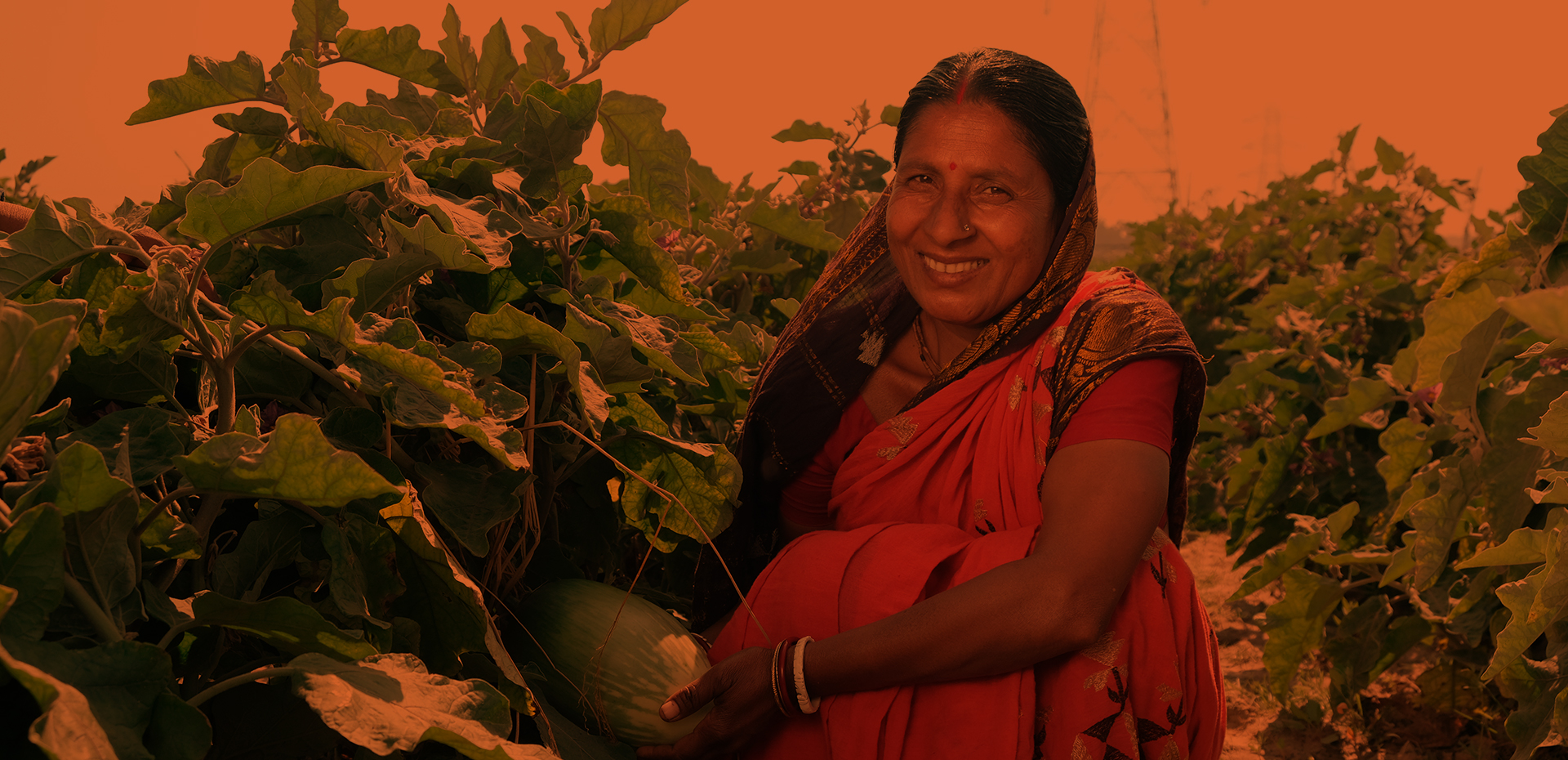
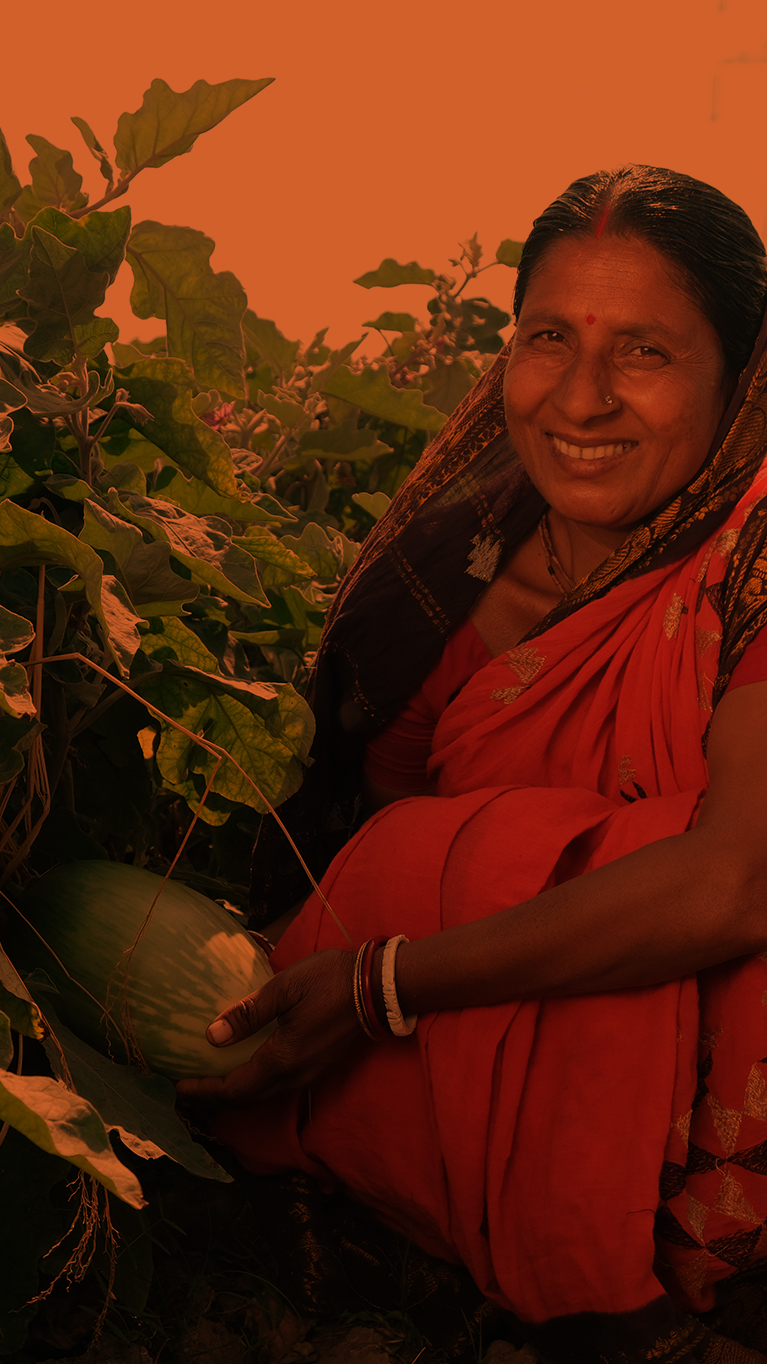


The main stay of the economy of Sankrail is both agriculture and industry. Population growth and rapid industrialization have resulted in fragmentation of land which is influencing the livelihood pattern of the rural community. Frequent occurrence of cyclones like Amphan, Yaas and erratic rain fall cause massive devastation of personal property, agriculture and allied operations. In Farakka the cropping pattern of the area is converted to another cropping pattern due to climatic change, irrigation partiality, low market level, high costing of pesticides, divert economic opportunity, high level of migration of labour towards Kolkata and other states for construction and overall low marginalized income. The majorities of PHCs and BPHCs are understaffed, have limited electricity supply and are poorly managed, resulting in underperformance and underutilization of existing facilities.
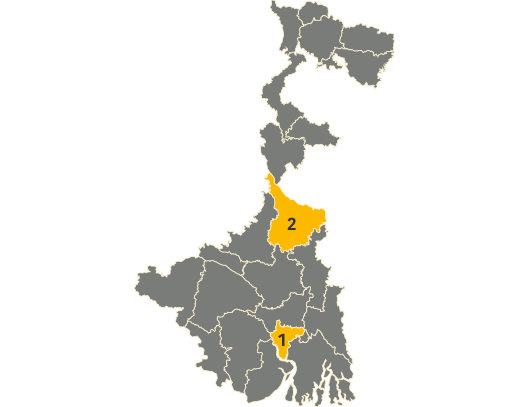
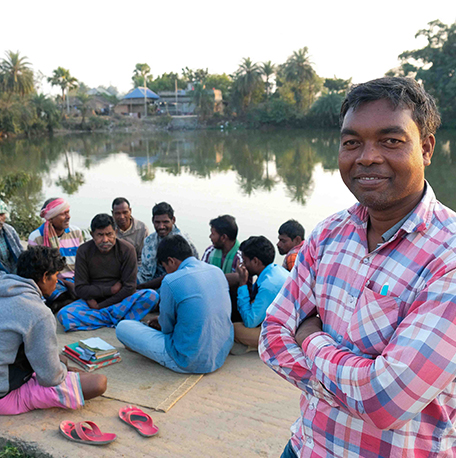
Ambuja Foundation ensures safe drinking water and develops irrigation infrastructure in West Bengal. Establishment of check dams ensure storage of water for longer periods – increasing groundwater levels, recharge of hand pumps, wells and other drinking water sources, and in-situ water conservation with increased soil moisture. River Lift Irrigation Systems have provided assured irrigation facilities to marginal, tribal farmers - stabilising agriculture production, increasing food production, cropping intensity, crop productivity and income levels.
People Benefitted
land under Irrigation
Cum storage created
Ponds revived
Handpumps installed
River Lift Irrigation system installed
Check Dams constructed
Sprinkler Irrigation System installed
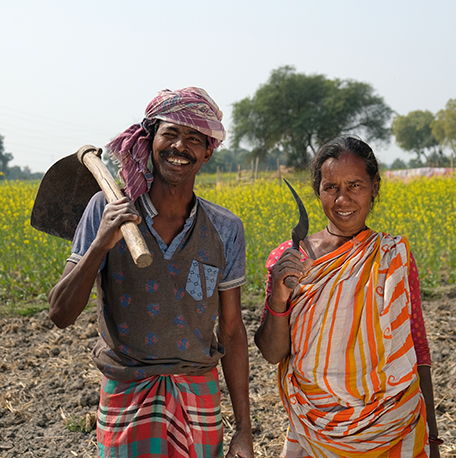
Ambuja Foundation supports farmers through the provision of scientific inputs, technological advancements, promotion of sustainable farming practices and capacity building of farmers - with an objective to double farmer incomes, improve standards of living, and reduce risks and vulnerabilities. A successful partnership with NABARD and the West Bengal Horticulture Department has helped in achieving scale. Vegetable farmers have been motivated to change their traditional seasonal cultivation to off-season cultivation under rain-shelters and the cultivation of creepers under scientific scaffolding - improving the quality of produce and aligning with market demand.
Increase in Farmers Income
covered under System of Rice Intensification
Increase in Rice Production
of fish farmers due to promotion of mixed aquaculture
for women through Poultry & Goat Rearing
Farmers covered under improved vegetable cultivation
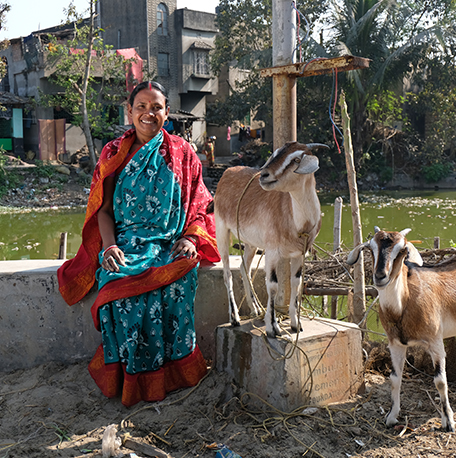
Realising the plight of women, Ambuja Foundation West Bengal harnesses the power of rural women as breadwinners, community leaders and change-makers. By engaging women via SHGs and ensuring their participation, Ambuja Foundation helps rural women have a voice and achieve socio-economic empowerment. Self Help Groups and Village Organisations, along with grassroot women leaders, play a key role in implementing the Women Empowerment Program at West Bengal.
Rural Women
Crore corpus generated
SHGs
Rural women engaged in income generating activities
Additional Income annually
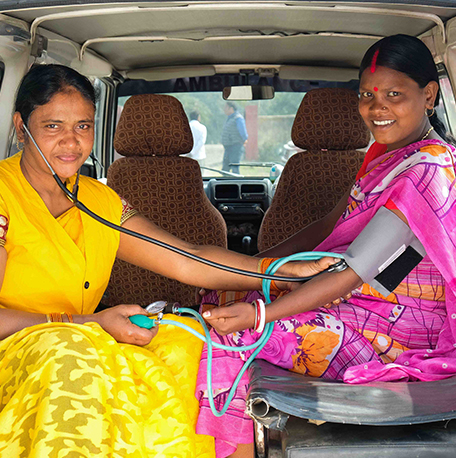
In West Bengal, a lack of access to quality health care services and lack of awareness on health and hygiene are the major challenges faced in rural communities. Maternal Child Health is implemented through Sakhis with the aim to reduce the Infant Mortality Rate and Maternal Mortality Rate in hard to reach areas. Ambuja Foundation works with preventive and promotive healthcare to bring sustainable change - working on 1000 days intervention, adolescent healthcare, and WASH. In addition, TB, Anaemia, Menstrual Hygiene Management and Malnutrition are other areas of intervention.
Institutional Delivery
Mother & Child Immunisation
Reduced Infant Mortality Rate
Reduced Neonatal Mortality Rate
Truckers covered under Trucker’s Intervention programme
Reduced STI within Trucker Community
Reduction in HIV+ truckers
ODF Villages
Adolescent Peer Educators
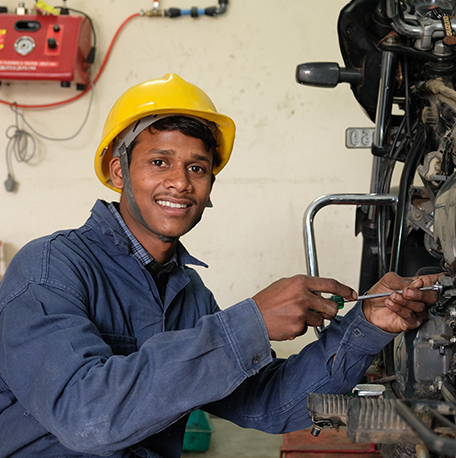
In West Bengal, Ambuja Foundation has three SEDI Centres – one at Farakka and two at Sankrail. The main objective of these SEDIs is to secure socio-economic empowerment and career progression of youth through skilling and placement. SEDIs in West Bengal are promoting job roles in trades like Automobile 2 Wheeler & 4 Wheeler Service Technician, Sewing Machine Operator, Smartphone Repairing, Beauty & Wellness, Sales Executive, Customer Care Executive, Refrigeration & Air Conditioner, Electrical, Welding, BCBF & EV Service Technician.
Youth trained
Youth placed
Average annual income
Female Youth trained